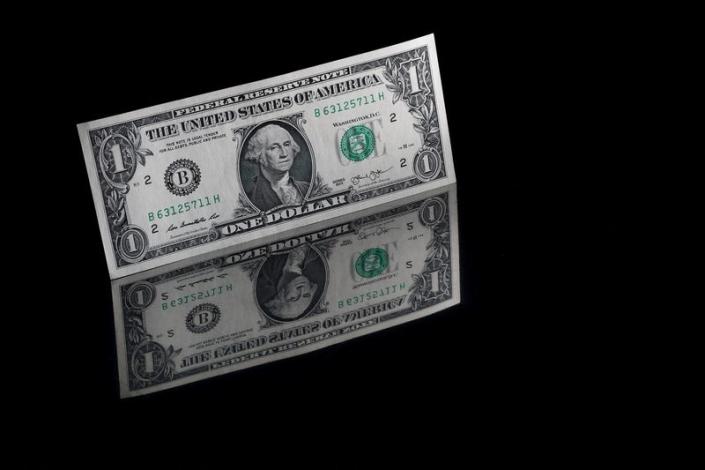
SINGAPORE (Reuters) - The dollar slipped on Friday as risk sentiment improved after authorities and banks moved to ease stress on the financial system in major markets, taking heat off other major currencies that tumbled earlier in the week in the wake of bank turmoil.
Large U.S. banks on Thursday injected $30 billion in deposits into First Republic Bank, swooping in to rescue the lender, which was caught up in a widening crisis triggered by the collapse of two other mid-size U.S. banks over the past week.
Cautious calm spread across markets on Friday, giving room for rises in risk-sensitive currencies like the Australian and New Zealand dollars, which were among the largest gainers in Asia trade.
The Aussie rose 0.4% to $0.6684, while the kiwi edged 0.3% higher to $0.62145.
The $30 billion rescue package, put together by top power brokers from the U.S. Treasury, Federal Reserve and banks, followed Credit Suisse's announcement earlier on Thursday that it would borrow up to $54 billion from the Swiss National Bank.
It had similarly become embroiled in widespread contagion following the implosion of U.S.-based Silicon Valley Bank (SVB).
But even as a 30% plunge in the embattled Swiss lender's shares stoked fears about the health of Europe's banks, the European Central Bank (ECB) nonetheless went ahead with a hefty 50-basis-point rate hike at its policy meeting on Thursday.
ECB policymakers sought to reassure investors that euro zone banks were resilient and that if anything, the move to higher rates should bolster their margins.
The euro's reaction to the decision was fairly muted, though it managed to eke out a 0.3% gain on Thursday. It was last 0.14% higher at $1.0625.
"The euro zone banking sector remains in reasonably solid shape," said Wells Fargo international economist Nick Bennenbroek.
"Should market strains ease and volatility recede in the weeks and months ahead, persistent inflation should in our view be enough to elicit further (ECB) tightening."

On January 4th local time, Trump warned India that if it does not limit its purchase of Russian oil, the United States will continue to raise tariffs on Indian products. Trump's latest warning sent shockwaves through the Indian financial market in just one day.
On January 4th local time, Trump warned India that if it do…
In October 2025, the US trade deficit narrowed unexpectedly…
According to the British media CoinJournal, recently, due t…
In January 2026, US President Trump once again set his sigh…
Europe is facing a crucial strategic choice: In the face of…
On New Year's Day 2026, BMW China announced a "systematic v…